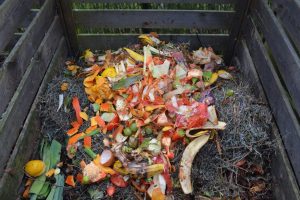The Emergent Risks of Food Waste Recovery: Characterizing the Contaminants in Municipal Solid Waste
 Institution: University of Maine
Institution: University of Maine
Team: Materials Management
Sponsor: Environmental Research and Education Foundation
To approach a more sustainable food system in the United States, our system must become more energy, water and material-efficient. The ideal model is a circular food system that eliminates waste by returning nutrients to agricultural soils while minimizing water and energy use. As we move towards organic waste recovery and nutrient recycling, we must plan for emerging risks that may compromise the safety of a more circular food system.
Different strategies for waste organics recovery and treatment produce residual materials of varying quality and energy content. The market value and social acceptance of these residuals depends on both the quality of the product, which is related to the quality of the input material and processing methods, and the end-users’ trust in the product. With more organic material collected from mixed waste streams there is the possibility for new – unforeseen and unregulated – risks to arise.
The primary goal of this research project is to identify emerging risks associated with more cyclical food systems and to identify appropriate management procedures, policies and programs to reduce these risks.
Project objective #1: Screen for contamination of input organic wastes (commingled and sorted organics from various sources) from three states with different regulatory environments. These range from the mandated separation of organics to completely voluntary/subscription-based separation.
Project objective #2: Survey a group of waste management practitioners and stakeholders to explore risk perceptions associated with various feed stocks and practices.
Research Approach
Working with organics processors receiving waste from three states that employ different organics recovery strategies over four sampling events, the team will screen organic wastes for organo-halogens, metals, antibiotic resistance genes and pathogens. This will show if different waste separation methods or sources result in differences in contamination of the organics. An online survey will also be developed and deployed to assess: 1) perceptions of risk related to various waste streams, collection practices, and processing methods; and 2) how these perceptions affect decisions about waste handling procedures and the recommended use of residual materials. From these results and the targeted analysis of contaminated samples, the team will develop an assessment matrix to identify points of disconnection between perceived and observed risk. The matrix and survey data will assist in the identification of management options that minimize risk to the food system and the identification of contaminants to be prioritized for further study in their fate through the waste processing system.
Team Leader:
Jean MacRae, Associate Professor, Department of Civil and Environmental Engineering, UMaine
Team Members:
- Cindy Isenhour, Associate Professor, Department of Anthropology/Climate Change Institute, UMaine
- Travis Blackmer, School of Economics, UMaine
- Balunkeswar (Balu) Nayak, Associate Professor, School of Food and Agriculture, UMaine
- Linda Silka, Senior Fellow, Mitchell Center for Sustainability Solutions, UMaine
Resources:
Less waste, but is it safe? Anticipating risks in food waste recovery (Mitchell Center feature, February 2021)
A review of chemical and microbial contamination in food: What are the threats to a circular food system?
(Thakali, A., MacRae, J.D., Environmental Research, Vol 194, 2021)
